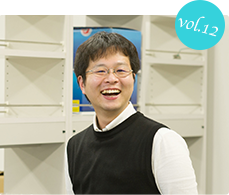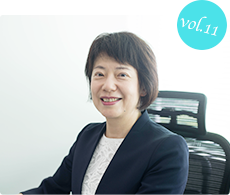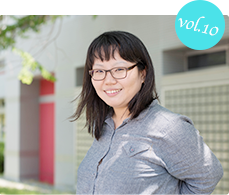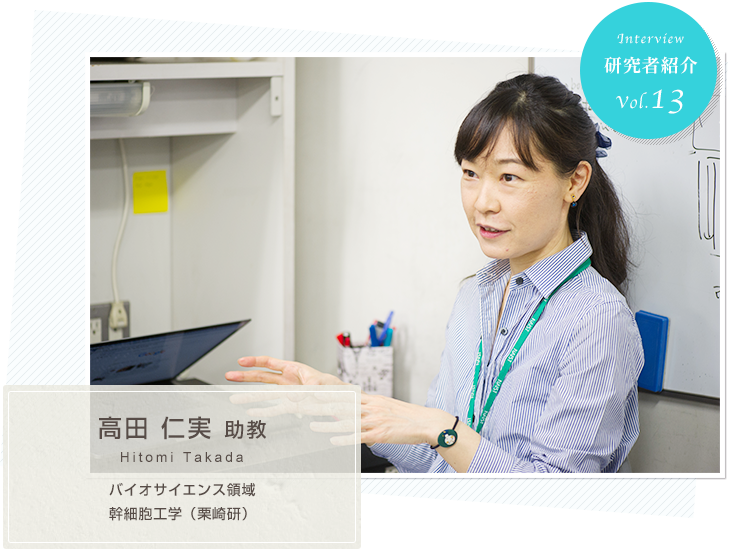
![]()
D. in Biological Sciences, Graduate School of Science, University of Tokyo. D. in Biological Sciences from the University of Tokyo. Specialized in developmental biology and stem cell biology. Her current research focuses on elucidating the mechanisms of gastric development and generating models of gastric cancer.。
Path to becoming a researcher
When I was in high school, my father recommended a book on embryology, which sparked my interest and I chose the developmental biology lab for my senior research. At first, I did not want to be a researcher and had not decided on a career path, but once I started my research, I was impressed by how interesting the world could be and immersed myself in my research. I remember that through discussions with my professors and lab members, I felt like I could see the world in a different light, finding interpretations and solutions that I could not come to on my own. I feel fortunate to have found something to devote my life to while still an undergraduate, and I am truly grateful to my advisor at the time, Dr. Masaki Taira, and my lab mates for giving me the opportunity to do so.
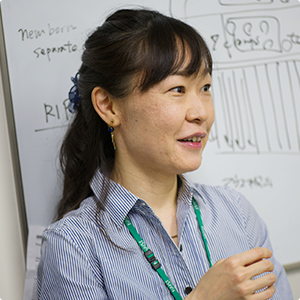
I went on to obtain my M.S. and Ph.D. degrees in the same lab, and spent three years at the National Center of Neurology and Psychiatry working on elucidating the mechanisms of nerve injury and disease onset using patient-derived iPS cells. After that, I moved to AIST to work on mesenchymal stem cells, and after moving to TUAT with Dr. Kurisaki, who was at AIST at that time, I worked on gastric research.
So, I originally started in basic science research and eventually turned my attention to peripheral areas such as clinical applications. At present, I am interested in both basic and applied research, and I am working on two topics: the mechanism of gastric development and the formation mechanism of gastric cancer. Basic research is necessary for the development of clinical applications, and conversely, applied research is useful in considering the direction of basic research, so I would like to develop my research synergistically by advancing both.
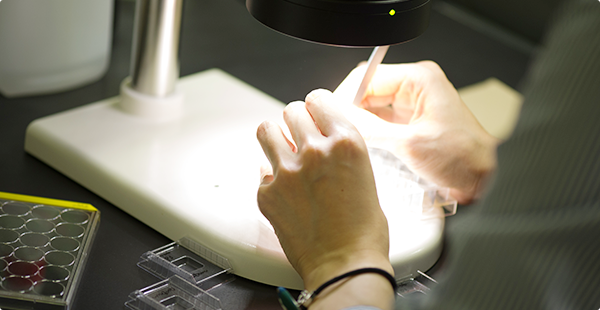
Research environment at NAIST
I think the research environment at our university is very good. It is wonderful that the researchers around me really enjoy doing basic research. I have seminars with members of the embryology research laboratories (Inagaki Lab, Bessho Lab, Sasai Lab, and Isoya Lab) twice a month, and I respect them all as excellent people. I would like to become a researcher who can have a positive influence on those around me, just like you.
I also feel that the administrative procedures at our university are very simple, so I have a lot of time to concentrate on my research. If I had to do a lot of paperwork, I could end up spending half a day just doing that, so I think the current environment is very good for me to be able to do my research without stress.
In the future, I would like to have my own lab. I think now is the time for me to study for that. I still have a lot to learn, not only in terms of my own research results, but also in terms of supervising students and managing the lab, including obtaining research funding.
I hope to absorb as much as I can from the wonderful faculty members who serve as role models.
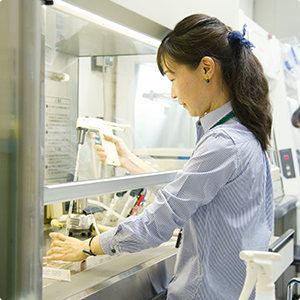
Daily schedule
I come to the lab at 9:00 a.m. and work until about 8:00 p.m. to 9:00 p.m. I control my work hours, such as leaving early if I feel I am not in perfect physical condition. I was a researcher before I came to the university, but now that I am a faculty member, I have more time to devote to teaching and I feel that I am busier than before. I come to the university and work half days, even on weekends. It is not easy to take consecutive days off because you cannot rest when you are culturing cells. However, I do not take it easy because I have a history of getting sick and being hospitalized twice when I was a student, and I believe that taking care of my health is my top priority. To students who seem to be in bad shape, I tell them, "When you get tired, take a good rest. It would be a disaster if you collapsed. If you collapse, it will be a disaster. I have never thought about the term "work-life balance," so I may not be an appropriate role model, but I am very grateful for my current situation, which allows me to have a fulfilling research life.
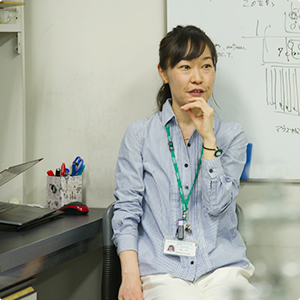
Towards a society that is tolerant of diversity in the way we live
There are many female students and faculty members in the field of biology, and I have never felt that being a woman was a disadvantage. Many of my former laboratory colleagues are also women. Some are continuing their research as scientists at universities and research institutes, while others are putting their work on hold to focus on raising their children, each following her own path.
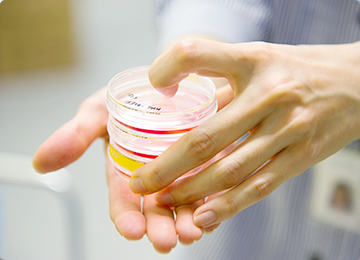
I believe that there is no right or superior way to live. I believe that the best way to live is to live a life that you enjoy, without being tied to the ideal daughter that your parents expect you to be, or the image of a woman that the world wants you to have. I believe that stereotypes such as "women have to be this way" make people suffer, and I hope to see a society where it is natural for each individual to live the way they want to live, and a society that is tolerant of diversity in the way they live. I hope that in the future the words "gender equality" and "minority" will disappear, and we will have a society where it is natural for everyone to live as they wish.
To students who aspire to become researchers
I think everyone feels anxiety and pressure about the future. I too sometimes feel depressed and anxious on a daily basis, but I have been able to continue my research so far because my love for research is stronger than my anxiety. I hope that students can look around the world and find what they like and what they can dedicate themselves to, not just research. Although I am still inexperienced, I hope to do my best to support the motivation of such students. Life is so much more fun when you find something you believe in. To do that, I think you have to think, act, and think deeply about things on your own. And sometimes I have to discuss with many people, even if there are conflicts.。
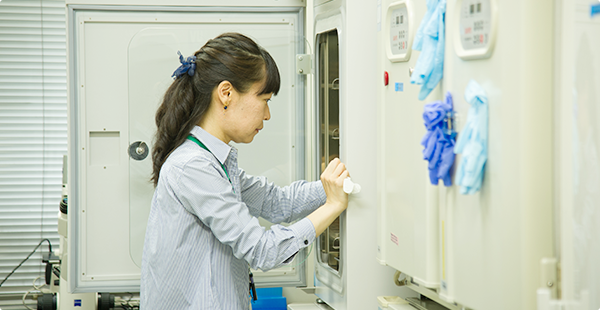
(June, 2018)

-
2018.6 updated
Division of Biological Science
-
2017.6 updated
Division of Biological Science
-
2017.6 updated
Division of Information Science






